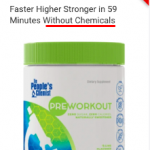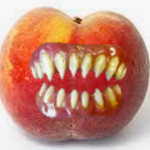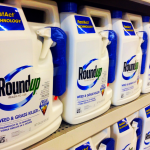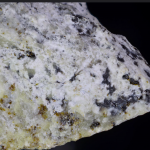Shane Ellison, the self-proclaimed "People's Chemist," has a lot to say about chemistry, drugs, and vaccines. Let's see if he knows what he's talking about.
Chemicals & Chemistry
Is there *nothing* so offensive and juvenile that it's off-limits, even to me? Maybe not.
What could be more delightful than a summer peach? The taste and scent are unmatched in the world of fruit. But beware. Chemicals are responsible for both the taste and scent and the Environmental Working Group doesn't like some of them. The salaries of those at the EWG are just peachy, but the chemical acumen of the group is the pits.
Perfluorooctanoate is a simple 8-member carbon molecule that has fluorine, rather than hydrogen, atoms. The result is a chemical that resembles simple forms of fat that occur naturally in our bodies – but does not break down significantly.
It's no secret that the weed killer glyphosate shows up in our food. But how much of a health risk is this to consumers? A new review paper examining the evidence offers a reassuring conclusion.
It's summertime, and for many of us, that means the beach. It is impossible to be a beach dweller and not notice the unique and wonderful smell of the ocean. By all means, take a deep breath. But what you're smelling is actually a fairly hideous chemical called dimethyl sulfide. Huh?
Pennies are not only profoundly annoying and useless, but they aren't even made from copper anymore. They are zinc. And the amount of energy used, and pollution generated just to mint and transport them is rather horrifying. They need to go.
In part one of this series, we looked at some of the hallmarks of sloppy pesticide reporting. We round out our analysis here with a breakdown of three more themes common to this species of junk journalism.
Pesticides can be very dangerous; they're also vital tools farmers use to produce our food. Here's a guide to help you navigate the media maze of sloppy reporting on pesticide safety.
Usually an excellent source for science-based commentary, The Conversation recently published, to put it charitably, a questionable article about the dangers of the weedkiller glyphosate. What did the authors get wrong? Almost everything.
It's not all that uncommon for a chemical to be named after the place where it was discovered or even after the chemist who discovered it. But when this is applied to geology the results can be...amusing, or (better still), tasteless.
Thanks to excess alcohol consumption, July 4th is the deadliest driving day of the year. If you find yourself inebriated at a DUI checkpoint blowing into a breathalyzer, you can thank Sir Ewart Ray Herbert Jones for the invention he published 75 years ago. Yep, you've been caught by organic chemistry, specifically, the Jones Oxidation.











